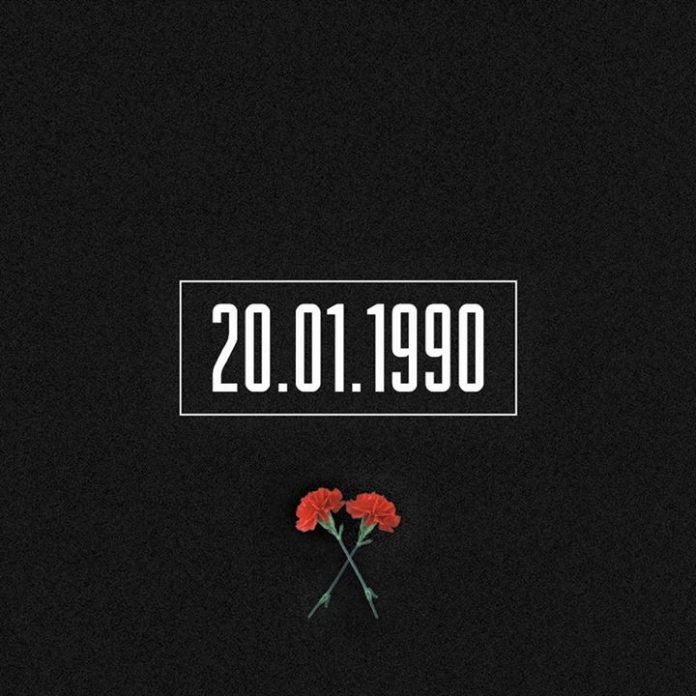
20 January – unbreakable will of Azerbaijani people
33 years passed since January 20, 1990, which entered the history of Azerbaijan as the Black January tragedy.
On January 20, 1990, the Soviet army forces entered Baku to suppress the masses protesting the USSR-supported Armenian aggression based on territorial claims against Azerbaijan.
The tragedy of 20 January was engraved in the history of Azerbaijan as “Black January”. Nevertheless, it was a heroic page in the history of the Azerbaijani people’s struggle for freedom and independence. This violent suppression brought a 70-year Soviet rule in Azerbaijan to an end and led to the restoration of its national independence.
At that time the people were protesting against the biased policy of the USSR leadership, demanding the investigation of crimes committed against Azerbaijanis in Armenia, also by separatists in Nagorno-Karabakh, and the punishment of criminals. The massacre of 20 January was committed by the former USSR leadership in order to suppress the people’s fair voice, as well as to prevent the possibility of independence of Azerbaijan. The day before the incident, the energy bloc of the Azerbaijan State Television exploded as a result of a provocation organized by the USSR Committee of State Security in order to hide information about the planned event from the population and the world community in general. On the night from 19 to 20 January 1990, the Soviet army was deployed in Baku, Sumgait, and other cities and districts of the country without declaring a state of emergency and fired on civilians using various weapons. Armed forces killed 150 unarmed civilians mercilessly regardless of their nationality, age, or sex, including children, women, and elderly, 744 peaceful, innocent people were wounded in the capital city of Baku and surrounding areas, hundreds went missing and 841 persons were unlawfully imprisoned. Even the ambulances and physicians carrying the injured persons were fired on, therefore medical staff became martyrs or were injured. 21 people were killed after the declaration of a state of emergency on January 20.
Immediately after the tragedy, on January 21, 1990, national leader Heydar Aliyev visited with his family members the office of Azerbaijan’s permanent representation in Moscow. He expressed solidarity with his people, sharply condemned the Soviet leadership for committing the bloody tragedy, and exposed those who led the operation.
The first political-legal recognition of the January 20 tragedy came on March 29, 1994, when Azerbaijan’s legislative body Milli Majlis adopted a relevant resolution on national leader Heydar Aliyev’s initiative, who came to power in 1993 by demand of the people. The resolution read: “The deployment of the Soviet troops in the city of Baku and several other regions and the brutal killing of civilians, with the intent to suppress, to break the confidence and will of a people who by peaceful means demanded a new democratic and sovereign state and to humiliate their national identity as a show of Soviet army power must be regarded as a military aggression and crime of the totalitarian communist regime against the people of Azerbaijan.”
33 years passed since January 20, 1990 tragedy, but this gross violation of the UN Universal Declaration of Human Rights, the International Covenant on Civil and Political Rights, and other international legal documents, which was one of the most serious crimes of the 20th century by its essence and scope, had not received an international political and legal assessment. The former Soviet leadership is directly responsible for this crime. According to international law, the events of January 20 must be described as a crime against humanity, and its initiators and perpetrators must be brought to justice.
Black January was a turning point in the history of Azerbaijan and proved to be a vivid manifestation of the bravery and determination of its people in defending their national identity.
January 20, 1990, which was engraved in the history of Azerbaijan as a day of national pride, could not break the determination of Azerbaijani people to fight for their freedom, their country’s sovereignty, and territorial integrity. Under the leadership of the Victorious Supreme Commander-in-Chief Ilham Aliyev, the brave Azerbaijani Army ensured the territorial integrity of Azerbaijan as a result of the 44-day war.



